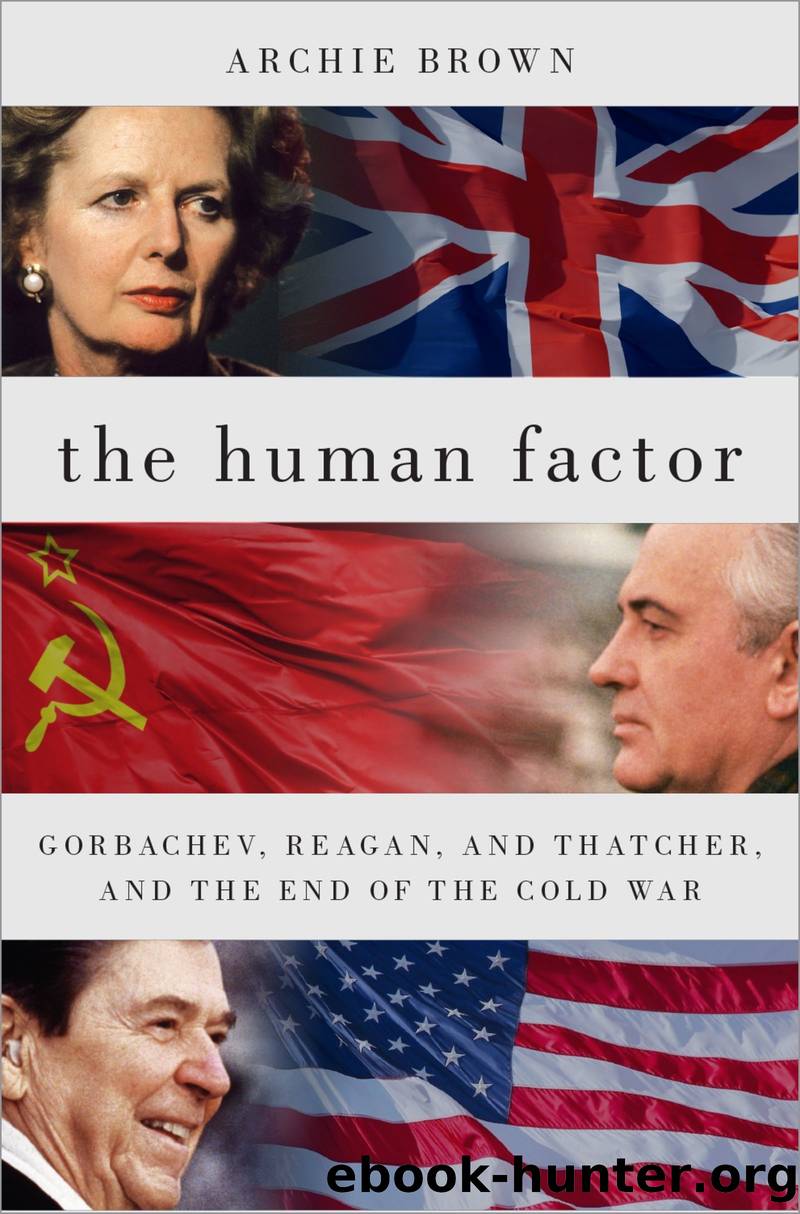The Human Factor by Archie Brown

Author:Archie Brown [Brown, Archie]
Language: eng
Format: epub
ISBN: 9780190614911
Publisher: Oxford University Press
Published: 2020-01-14T00:00:00+00:00
Almost on the eve of the elections to the Congress of People’s Deputies, Gorbachev put the finishing touches to a new book manuscript written in 1988 and early 1989. A team assembled by Chernyaev had been working intensively on it, but it was a project on which Gorbachev expended a lot of effort, writing and amending in spare moments. Chernyaev, at one point, believed its impact might be still greater than that of Gorbachev’s 1987 book, Perestroika: New Thinking for Our Country and the World, which became a worldwide bestseller.28 Yet, in the end, Gorbachev decided not to publish the manuscript. Events were moving so fast that it was becoming out of date, and Gorbachev’s own views were evolving, too. The manuscript was very different from what any previous Soviet General Secretary would or could have written. It displayed commitment to democratization and reform, and attacked Stalin and Stalinism. Yet it was a mixture of the new and the old inasmuch as it linked perestroika to the ideas that Lenin was formulating in the last few years of his life. The manuscript both idealized the ‘late Lenin’ (whose last works, wrote Gorbachev, ‘were permeated by anxiety’) and made conscious use of him to legitimate perestroika.29 While no reform of the Soviet system could have got off the ground with a frontal attack on Lenin, 1989 was the year in which political debate was leaving Lenin behind. It was the start of a period in which Gorbachev was beginning to see that his growing attraction to the democratic socialism of social democratic parties was incompatible with a belief in Leninism, however refined or redefined. While the pluralization of Soviet politics owed more to Gorbachev than to anyone else, the new pluralism, and the intellectual and political debate it generated, influenced also its progenitor—one of whose most important characteristics was the possession of an open mind.
Echoing the language of Lenin, Gorbachev had referred, in the unpublished manuscript, to Boris Yeltsin’s ‘ “infantile” disease of ambition’.30 However, the March 1989 election gave Yeltsin the opportunity to launch a political comeback, one which he seized with both hands. Still a member of the Communist Party, he overwhelmingly defeated the favoured candidate of the party hierarchy in a Moscow-wide constituency. Jack Matlock later wrote that he had found Yeltsin’s victory ‘less astonishing than the fact that the votes had been counted fairly’ (italics Matlock’s).31 Some of the most anti-establishment votes were recorded in Moscow and Leningrad. In an outcome that would have been unthinkable even a year or two earlier, Russia’s second city saw the defeat of the first secretary of the Leningrad regional party organization and candidate member of the Politburo, Yury Solovev. An anti-apparatchik vote was also discernible in the Ukrainian capital, Kiev, while the people of the Baltic republics took the opportunity to make known what they thought of their current republican bosses. The chairmen of the Council of Ministers of Latvia and Lithuania were among the candidates who failed to be elected.32
The elections fell well short of being fully democratic.
Download
This site does not store any files on its server. We only index and link to content provided by other sites. Please contact the content providers to delete copyright contents if any and email us, we'll remove relevant links or contents immediately.
| Arms Control | Diplomacy |
| Security | Trades & Tariffs |
| Treaties | African |
| Asian | Australian & Oceanian |
| Canadian | Caribbean & Latin American |
| European | Middle Eastern |
| Russian & Former Soviet Union |
The Secret History by Donna Tartt(16668)
The Social Justice Warrior Handbook by Lisa De Pasquale(11495)
Thirteen Reasons Why by Jay Asher(7803)
This Is How You Lose Her by Junot Diaz(5801)
Weapons of Math Destruction by Cathy O'Neil(5049)
Zero to One by Peter Thiel(4838)
The Myth of the Strong Leader by Archie Brown(4796)
Promise Me, Dad by Joe Biden(4459)
Beartown by Fredrik Backman(4437)
Stone's Rules by Roger Stone(4423)
How Democracies Die by Steven Levitsky & Daniel Ziblatt(4419)
The Fire Next Time by James Baldwin(4352)
100 Deadly Skills by Clint Emerson(4089)
A Higher Loyalty: Truth, Lies, and Leadership by James Comey(4042)
Rise and Kill First by Ronen Bergman(4026)
The David Icke Guide to the Global Conspiracy (and how to end it) by David Icke(3896)
The Farm by Tom Rob Smith(3880)
Secrecy World by Jake Bernstein(3791)
The Doomsday Machine by Daniel Ellsberg(3741)
